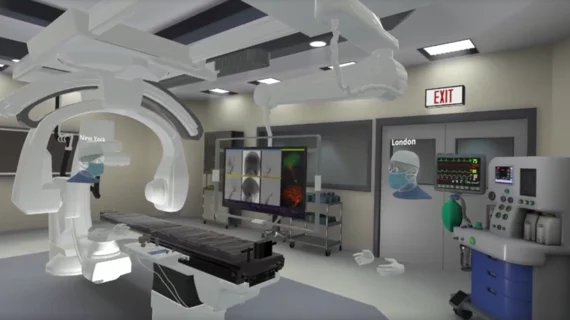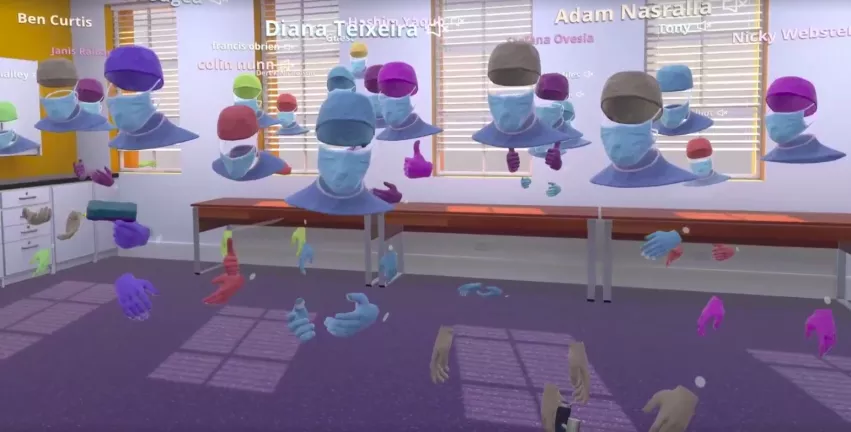Virtual reality specialists launch new training solutions for endovascular surgery
FundamentalVR, a London-based healthcare technology company that designs virtual reality (VR) solutions, has announced that it will now be offering haptic training simulations focused on endovascular surgery.
Users access these immersive simulations through the company’s Fundamental Surgery platform, which is designed to “mimic the physical cues of surgical actions, tools and tissue textures felt in real-life surgery.” Direct replicas of real-life devices can also be introduced to these simulations, helping the user work in an area that closely matches their normal working environment.
Some of the new training tools the company will now be offering include simulations focused on acute ischemic stroke, endovascular aneurysm repair, cardiac rhythm management, coronary interventions and carotid interventions. These simulations are all based on haptic technology, and each decision the user makes it recorded so that it can be reviewed.
“Our immersive platform features the same sights, sound and sensations a surgeon would encounter during real procedures and accelerates the transfer of surgical knowledge and skills in a cost-effective way,” Richard Vincent, co-founder and CEO of FundamentalVR, told Cardiology Business. “We have built these ‘pre-human’ competencies in other sectors and now are applying that capability to endovascular surgery to help increase safety and precision.”
FundamentalVR already provides training solutions for orthopedics, general surgery, robotics and ophthalmology. In addition, the company has developed CollaborationVR, a “personalized virtual space” where users can meet with one another, compare notes and discuss patient care.
Related Virtual Reality Technology Content:
How virtual reality can help cardiologists treat coronary artery disease
Could virtual reality be the future of CPR training?
VIDEO: 4 predictions on key cardiac technologies for the coming years


